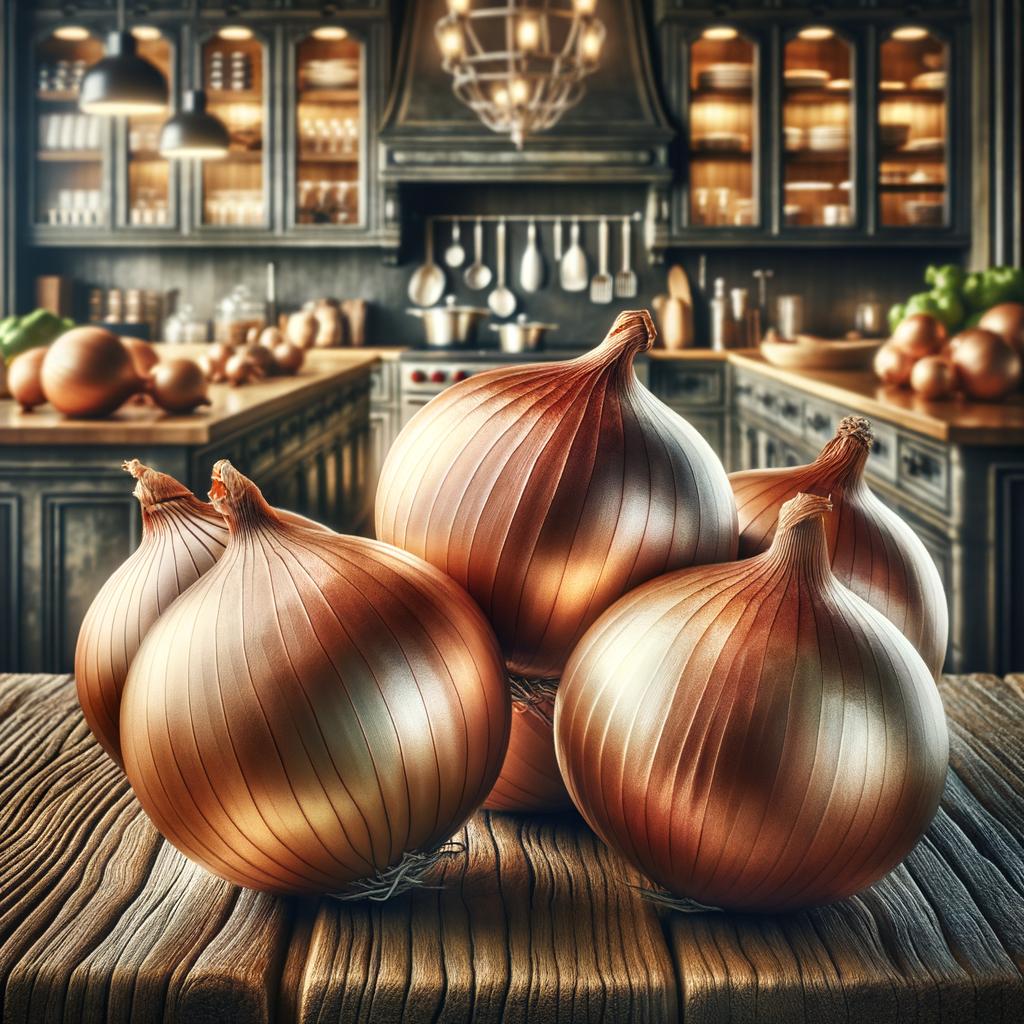Large Onions

Description The large onion, also known as the bulb onion or common onion, is a vegetable that's as humble as it is versatile. It takes on a round, slightly oblong shape, and its size can range from that of a small apple to a large grapefruit. The skin, which ranges from pale yellow to a deep, rich gold, is thin and papery, peeling away to reveal layers of crisp, juicy flesh. Its texture is firm yet yielding, and its flavor profile is a complex dance of sweetness, bitterness, and pungency that intensifies when cooked. What sets the onion apart from its fellow alliums is its tear-inducing sulfur compounds, a unique characteristic that has become a rite of passage for many home cooks.
Primary Uses Onions are a cornerstone of culinary traditions across the globe. They are used as a base for soups, stews, and sauces, providing a depth of flavor that is hard to achieve with other ingredients. They can be fried until crisp and golden, caramelized to a sweet, sticky tenderness, or left raw to add a punch to salads and sandwiches. Beyond the kitchen, onions have been used for medicinal purposes for centuries, with ancient cultures using them to treat ailments like headaches, heart disease, and mouth sores.
History Onions have a rich and romantic history that dates back over 5,000 years. They were revered by the ancient Egyptians, who believed their spherical shape and concentric rings symbolized eternal life. Onions were even found in the tombs of pharaohs, intended to accompany them to the afterlife. Over time, onions have traveled with explorers and traders, finding their way into almost every cuisine around the world. They've also been the subject of folklore and myths, with tales of their protective powers against evil spirits and disease.
Nutritional Information Onions aren't just a flavor powerhouse; they're also packed with nutritional benefits. They are an excellent source of Vitamin C, a powerful antioxidant that boosts immune function. They also contain a good amount of dietary fiber, which aids in digestion. Additionally, onions are rich in B-vitamins, including folate and pyridoxine, which play vital roles in metabolism and red blood cell production. Compared to similar ingredients like garlic or leeks, onions offer a broader range of nutrients, making them a valuable addition to any diet. However, they also contain fructans, which can cause digestive discomfort in some people. Despite this, the humble onion remains a beloved staple in kitchens worldwide, a testament to its enduring appeal and nutritional prowess.

